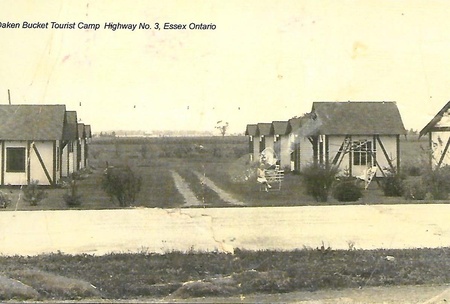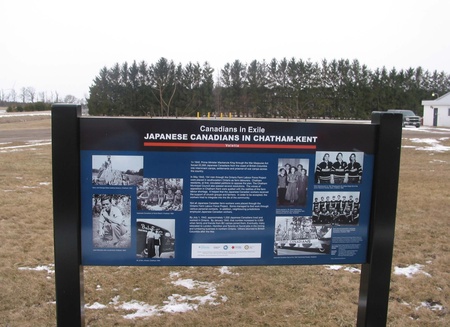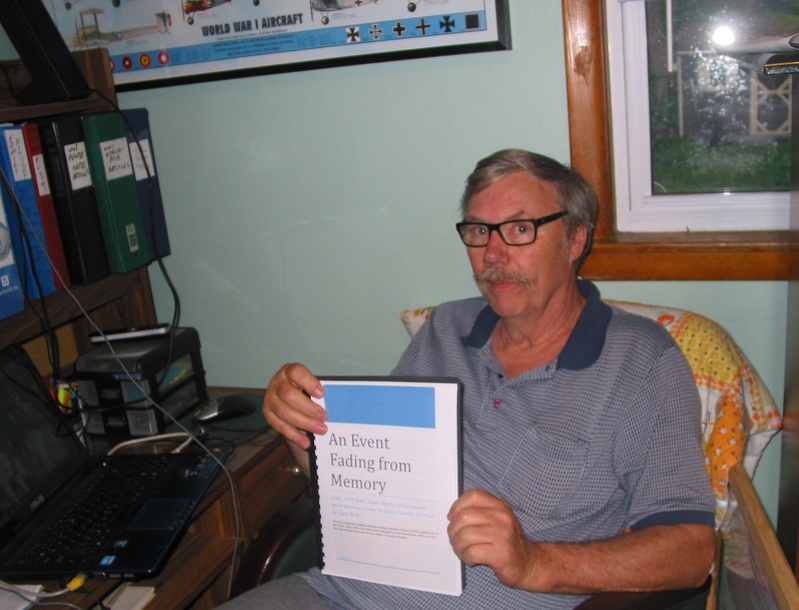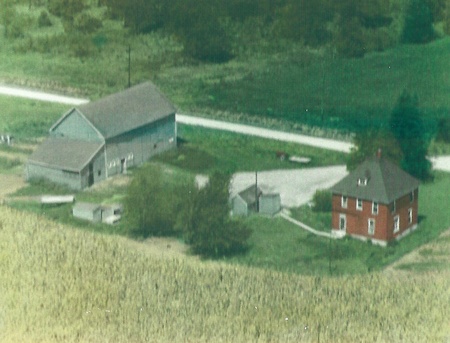In 2018 after many years of being forgotten, an interest was rekindled in Chatham-Kent in remembering the Japanese-Canadian WWII farm camps in southern Ontario. Chatham-Kent officials and the National Association of Japanese Canadians (NAJC) worked to have five memorials and trees planted to commemorate these places and the young Japanese-Canadian men who came to work in 1942. However, there were other camps in Lambton County and one in Essex County for which I tried to capture at least some of the history. This research was a project for our local Elder College, and the “Essex” camp was examined as it was in operation longer than any other place and yet had nearly faded away from memory.
The camp was planned to be in the town of Essex on the local fairgrounds and was subject to the usual sales pitch by the government to the local council. The town decided to have a public meeting on the subject which turned into a fiasco as virtually all the people attending were not in favour. The government then said it would not put the camp in town unless asked by the residents; nevertheless, in two weeks the young men who were being recruited would arrive in the area. This led to the officials placing the camp in Gosfield North Township in North Ridge which to this day is still not even a village. This was about two miles from the town of Essex and came to be known as the Old Oaken Bucket Tourist Camp after the cabins of the same name. The first group of men came to a local farmhouse known as the Switzer Farm and eventually the cabins were also used.

Sadly, no pictures or records were formally kept but by reading the local papers for all the years, examining the town records and interviewing many elderly locals, a bit of a story can be pieced together. Nineteen men came initially and the number grew to thirty-six in 1943. The men worked on beet crops around Essex County and also on other crops as the season progressed. Corn was detassled, strawberries and tomatoes were picked and there are records of the men staying at some different locations as the needs dictated. There were complaints of low pay, as the earnings originally spoken about could not be achieved, and some small disruptions in work.
This camp was probably typical of the whole project in that as the season progressed there was a growing acceptance by the farmers of the workers and there are reports of them competing with each other for the services of the Nisei. It was reported, also, that at the end of the growing season there was a petition to the government in support of the men. The sugar beet company spokesmen also issued statements about how these men had been crucial in getting the needed beet crop grown.
Unfortunately it was also typical that there was sometimes tension between some of the residents and the Nisei. I personally interviewed a lady who told me that as a young girl the other kids would scare her by saying “the Japs are going to get you” and she always rode her bike by the camp as fast as she could. The Essex town council also supported the local Legion who, following the lead of the national organization, called for all Japanese to be put in concentration camps. The men did go into town, ate out, played pool and especially went to movies, but there was a background of mistrust.
At the end of the 1942 season many men stayed in southern Ontario and a number worked in a local warehouse. Since this was a private arrangement I could not document where they stayed but it had to be local as there was no transportation available. While there may have been uncertainty by some residents, it seems that these men played a role in supplementing the labour force locally.
1943 saw a failure by the government to recruit many workers and so for an unknown reason only the “Essex” camp reopened, albeit with some returnees, some from other camps and some new men. The bad reports sent back by the men in the first year seemed to discourage the Nisei from participating in this work. There were to be fewer restrictions and no direct RCMP presence but an incident in June seemed to epitomize the whole program. On Saturday June 5, 1943 two local men accused five Nisei of not paying for a pool game the previous week. Things soon escalated and the owner had to lock the doors as a crowd gathered threatening violent action. The RCMP and Windsor police had to be called to disperse the crowd and under police questioning the protagonists admitted they had the wrong men.
The next evening a special meeting was held at the Legion and the upshot was that more RCMP presence was required and that no Nisei could be in town on Saturday night and had to leave by 10:30 on other nights. A police officer would be stationed in town on those nights. The local large paper, The Windsor Star, editorialized that a tight hand be kept on the situation and that “If the Japanese are truly loyal, let them prove it by submitting to whatever rules and restrictions are placed on them.” (June 8, 1943)
Interestingly, after this, no mention was ever made again, that I could find, about the camp or program. It seemed to fade away and die a deserved death. While the farmers may have wanted and needed the men, the governmental will to push for this type of program as well as the unwillingness of the Nisei to work in these camps sounded the death knell. I found a few unconfirmed reports of a camp in 1944 but if one existed, it was not publicized.
As a child growing up in the 1960s, a mile from the original farmhouse where the first men came, there was never any talk or mention of these events. Now with all the workers gone and memories fading there is a willingness to talk about them and a class I gave on the subject for our local Elder College attracted much interest as well as a full page article in the same Windsor Star. It is hoped that we can get enough cooperation to place a proper memorial marker so that these events are not lost to time.

© 2019 Gary Wells




